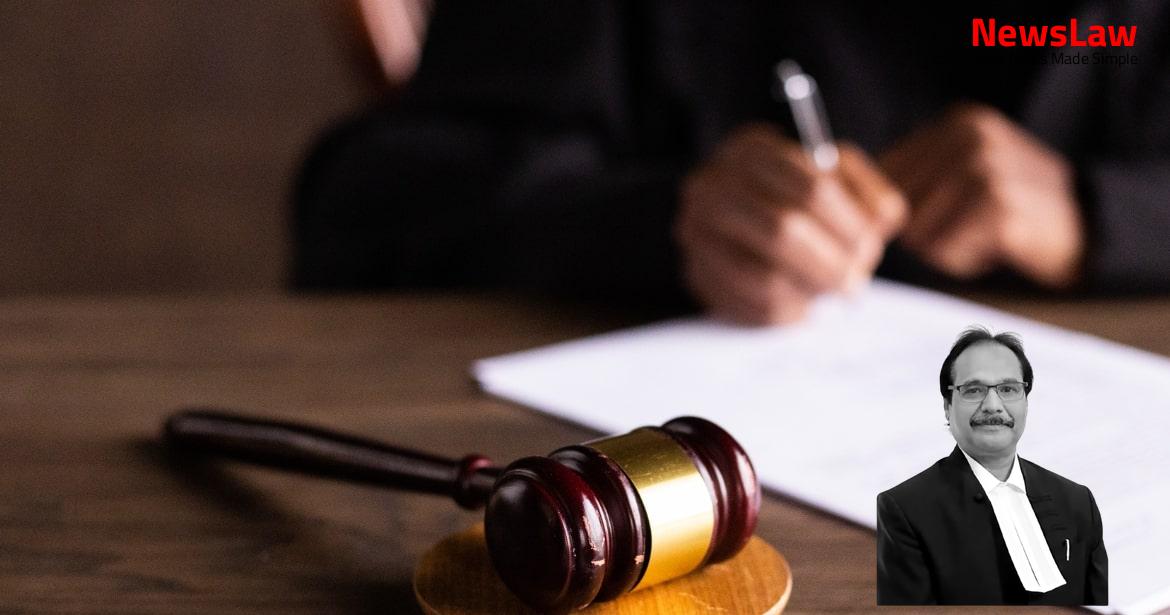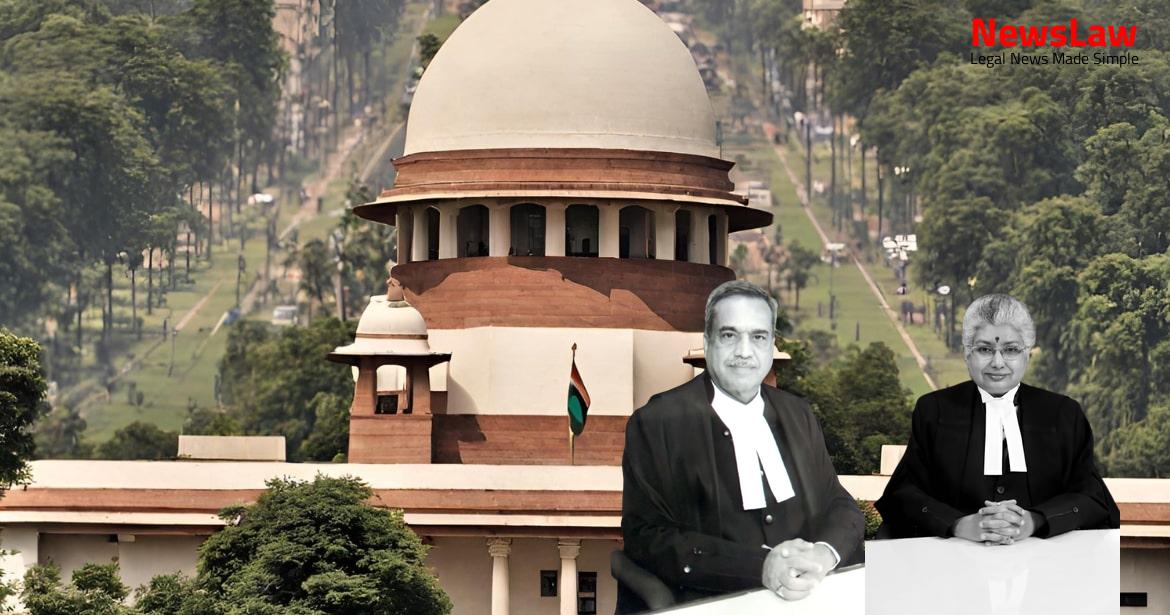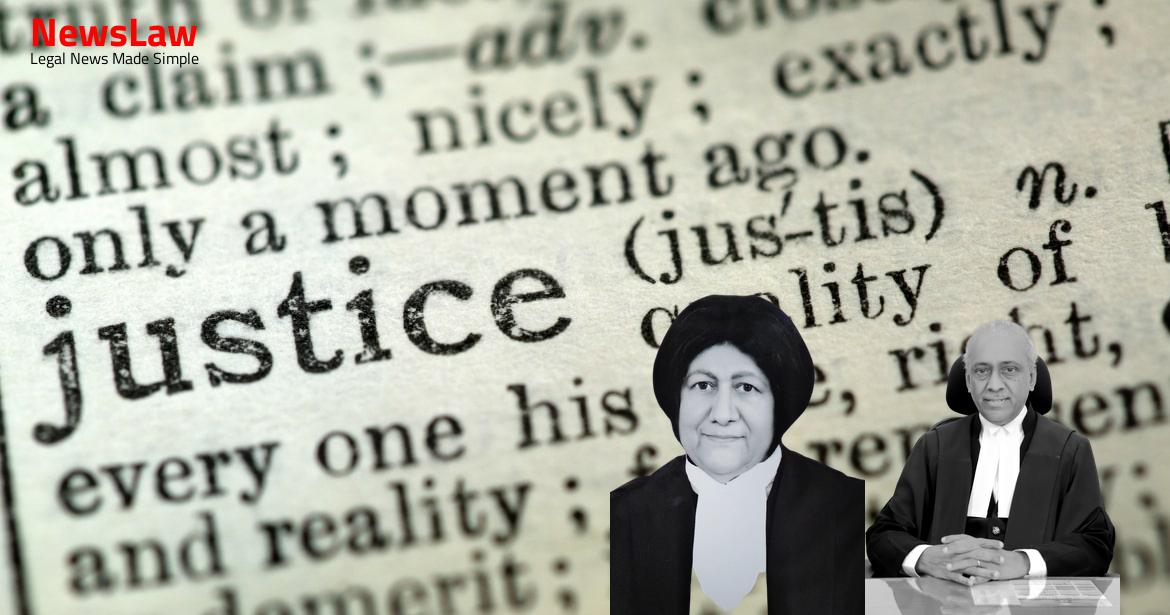In a groundbreaking decision by the Supreme Court of India, the case of Khalsa University has set a strong stance on upholding constitutional rights. This pivotal ruling addresses the concerns raised by Khalsa University in light of legislative actions taken against the institution. The judgment provides clarity on the application of Article 14 of the Constitution, ensuring fair treatment and justice for all parties involved. Stay tuned to learn more about the implications of this crucial legal battle.
Facts
- In 2010, Punjab framed the Punjab Private Universities Policy.
- Khalsa College Charitable Society proposed to set up a self-financing University based on the 2010 Policy.
- On 5 March 2011, the Higher Education Department issued a Letter of Intent to Khalsa Society for Khalsa University, Amritsar.
- The Punjab Vidhan Sabha passed The Khalsa University Act, 2016 on 7 November 2016.
- Khalsa University was established and admitted 215 students for the Academic Session 2016-17.
- The High Court dismissed the Writ Petition filed by the appellants on 1 November 2017.
- State Government promulgated an Ordinance on 30 May 2017 repealing the 2016 Act.
- Registrar of Khalsa University communicated enactment of Statutes in line with 2010 Policy, 2016 Act, and UGC guidelines to the Department of Higher Education, Punjab.
- Punjab Vidhan Sabha passed The Khalsa University (Repeal) Act 2017 shortly after communication by the Registrar.
- Impugned Act received assent of Hon’ble Governor on 4 July 2017 and published in Punjab Government Gazette on 17 July 2017.
- Khalsa University and Khalsa Society filed Writ Petition C.W.P. No 17150 of 2017 (O&M) at Punjab and Haryana High Court challenging the communications, Ordinance, and Impugned Act.
- Communications from the Superintendent of Higher Education Department on 6 April 2017 and 17 May 2017 to Khalsa University regarding approval of Statutes before starting the admission process.
Also Read: Quashing of Criminal Proceedings: Settlement between Bank and Accused Persons
Arguments
- The petitioner, representing Khalsa University, argues that the establishment of Khalsa University did not infringe on the agreement to not touch Khalsa College.
- The Khalsa University pleaded a ground of discrimination, which the respondents failed to address, as per Chiranjit Lal Chowdhuri case law.
- The burden lies on the challenger to prove invalidity of the Impugned Act.
- The State of Punjab singled out Khalsa University out of 16 private universities, claiming it was arbitrary, discriminatory, and violated Article 14 of the Constitution.
- The petitioner contests the reasons stated in the Statement of Objects and Reasons for passing the Impugned Act. They claim it was based on a factually erroneous matrix and lacked valid grounds for legislative intervention.
- The Impugned Act was accused of being discriminatory and violating Article 14 as it targeted only Khalsa University under unclear classifications.
- The petitioner claimed the action to shut down Khalsa University was discriminatory, especially compared to the number of universities in other regions of Punjab.
- It was argued that burdening the petitioner with proving arbitrary targeting was impracticable and unnecessary.
- Statements made by Captain Amarinder Singh were cited as evidence of mala fides in passing the Impugned Act.
- The petitioner refuted the reasoning that the Impugned Act was solely to protect the heritage of Khalsa College, suggesting a different agenda.
- The appellants might allocate more attention and resources to the private university, potentially neglecting the historic Khalsa College.
- Citing cases of Chandan Banerjee v. Krishna Prosad Ghosh and State of Tamil Nadu v. National South Indian River Interlinking Agriculturist Association to support the argument.
- The appellants, including Khalsa Society, had no vested right in their status as a University.
- Shortly after the 2016 Act was enacted, the Impugned Act was put into effect, with provisions catering to the students affected by the change.
- Arguing for a general legislation instead of targeting Sri Aurobindo Society specifically for adverse treatment.
- Warns of potential similar mismanagement situations in other institutions that may warrant government intervention, as in the case at hand.
Analysis
- The Court observed that there was no material change in the situation on the date of the impugned Ordinance or the Act, and the sordid situation prevailing in Auroville fully justified the enactment.
- The legislation affecting a single entity or institution can be valid if based on reasonable classification with a nexus to the object to be achieved, as seen in previous cases.
- The Court emphasized the importance of proper investigation and material consideration by the legislature before enacting laws affecting single entities.
- The argument that legislation affecting single entities should be struck down as arbitrary was dismissed, citing that such laws can be necessary in emergent situations preceded by parliamentary debates, etc.
- The Court held that even a single institution may be treated as a class by itself under specific circumstances, such as when unique factors are present.
- It was found that the facts supporting the legislation affecting the Khalsa University could not be said to violate Article 14 of the Constitution.
- The Court reiterated that legislation affecting single entities, if passed with proper justification and in extraordinary circumstances, can be valid and constitutional.
- The Court emphasized that even if other entities may be similarly situated, the unique circumstances surrounding the Khalsa University justified the special legislation.
- Khalsa University (Repeal) Act, 2017 is repealed.
- Admission of affected students to be given in other educational institutions in Punjab.
- Khalsa University (Repeal) Ordinance, 2017 is also repealed.
- Khalsa University was established as a private university under the 2010 State Government Policy.
- The Act proposed to be repealed consists of three sections.
- The Act is deemed to have come into force from May 30, 2017.
- The Sholapur Spinning and Weaving Company (Emergency Provisions) Act, 1950 was enacted targeting specifically the Sholapur Mill
- The Act dismissed the Managing Agents of the Sholapur Mill and automatically vacated the office of Directors
- Factors considered by the Government for singling out the Sholapur Mill included national importance, being an economic unit, technical reports on plant conditions, and a proper inquiry
- The constitutionality of the Act was challenged on grounds of discrimination and arbitrariness under Article 14 of the Constitution
- The judicial review emphasized the need for a reasonable basis and rational classification for legislation targeting a specific entity
- The legislative process and discretion were accorded due regard, emphasizing the role of the legislative body in determining regulations for specific cases
- The Act was found to be discriminatory and violating Article 14 by targeting a single entity without reasonable grounds or class-based classification
- The Impugned Act is liable to be set aside as it lacks resemblance with the Khalsa College building and would damage its character and heritage.
- The foundation that Khalsa University would shadow the glory of Khalsa College is non-existent.
- The Impugned Act was enacted with a non-existent purpose, leading to manifest arbitrariness and violation of Article 14 of the Constitution.
Also Read: Case Summarization: Revisiting the Power of Summoning Additional Accused
Decision
- The Khalsa University Act, 2016 would be deemed to be in force and status quo as it obtained on 29 May 2017 would stand restored.
- The Khalsa University (Repeal) Act, 2017 is struck down as being unconstitutional.
- No order as to costs shall be issued.
- Appreciation for the valuable assistance provided by Shri P.S. Patwalia, learned Senior Counsel and Shri Shadan Farasat, Additional Advocate General for the State of Punjab.
- Pending application(s), if any, shall stand disposed of.
Case Title: KHALSA UNIVERSITY Vs. THE STATE OF PUNJAB (2024 INSC 751)
Case Number: C.A. No.-010999-010999 – 2024



